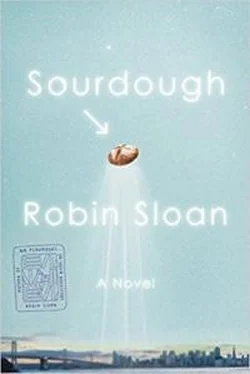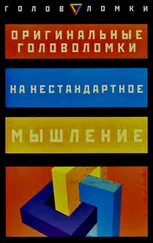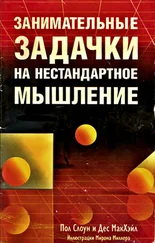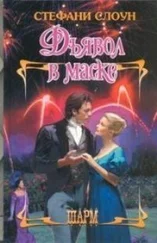He took a breath.
“In that cave, empires are rising and falling. There are battles under way. Wars. More soldiers on both sides than in all the wars of human history combined. And they are struggling . They are taking territory, making it safe. Building fortresses.” He lifted the wheel he’d chosen out of his basket and hefted it. “There is a saga in here to put our whole history to shame .”
His eyes were a little defocused now, lost in the grandeur of his rant.
“In every wheel of cheese, there’s revolution, alliance, betrayal … Can you feel it?”
I told him the truth: I could not.
“Nope. You’re honest, I appreciate that. Of course you can’t. I couldn’t, not at first. We’re blind to it. But this is their world, not ours, and their stories are greater.”
I frowned. “They’re just bacteria. They don’t think or plan. They just … exist.”
“Just exist ? They do things we only dream of. They are fecund and potent, they can speak to one another with chemicals and light, they can form teams—oh, the teams they can form. Millions strong, all working together perfectly. If we could cooperate like that—if we could even get close—we would have all of our problems solved. They can live at the bottom of the ocean. They can live in volcanoes. They can live forever.”
Well: my comrades below had sent me to the right person. This was a man who loved microbes.
He looked at me, eyes blazing. “This is all I have to offer you. If you can understand this—if you can not only hear what I’m saying but believe it—then you’ll know what to do with your starter.”
We were both silent a moment. Then I ventured: “Can you at least give me a hint?”
He laughed. “Sure. What I’m saying is, first you have to respect it.”
He spun his wheel of cheese around and sniffed it, sucking in a great deep breath. Then he held it out, turned it a degree either way, inspecting, and the look on his face showed more than respect. It showed awe.
ON THE GREAT ROCKY ISLAND, M. built a kingdom! His friends and family feasted on the fruits of the cave and they were well nourished. They built a long jetty, a place where ships could pause on their journeys across the sea. To feed the sailors, the Mazg brewed beer and baked bread. The fluttering, wobbling culture of the cave, they kept secret.
This is a pretty good story so far, but maybe you’re wondering, Why haven’t I heard of M.’s great rocky island? Why is it not a wealthy maritime state? Why are Beo and his cousins hidden away in all the second-story apartments of Europe?
Because, of course, there was a problem.
Their port was very successful, and the population of the Mazg (we can call them that now) grew rapidly in just a few generations. They became beer-drinkers and bread-eaters themselves, because the culture of the cave thrived nowhere else, not even in other caves on the island. For a long time, they wondered why. Most shrugged. Then a girl of the Mazg, a genius, simply opened her ears. The whistling song across the narrow crevice was linked somehow to the life of the culture. Through experimentation, she determined the crucial tones and sequences. This is the origin of the songs that the Mazg sing today—the songs on your CD.
This girl became the governor of the great rocky island, and she transformed it, bringing the culture out of the cave. Now the Mazg had beer and bread and something else, too. Sailors who tied up their ships and walked ashore to rest and trade were well fed and well treated, but they were not allowed behind the walls of the fortresses in which the culture of the Mazg was propagated and the songs of the Mazg were sung.
Behind those walls, the language of the Mazg grew in upon itself and lost its kinship with other languages.
AGRIPPA (CONTINUED)
I RETURNED TO THE AIRFIELD the next day because the others had spoken the truth: Agrippa was a genius. Maybe also an asshole. But I believed he had something to teach me; I believed he understood the starter in a way I didn’t, or couldn’t.
The cheese is not the thing, he told me. The cheese is just the territory, the battleground. The bacteria are the thing. They are the actors on a milky stage.
Most plants have at least one bacterial symbiote, he told me. He pronounced it carefully: sym-bi-ote . He looked out across the airfield, at the scrubby red and green plants. All those? Infected. But that’s not the right word, he said. Infected means there’s something wrong. This is all right; it’s partnership. Some plants are infected by bacteria that are themselves infected by a virus. Wheels within wheels. Clockwork.
You have four pounds of bacteria in your body, he said. You don’t feel it. He bounced on his heels. I think I’m starting to feel it. I think I can talk to them.
Talk to them?
Yes, he said. Send them messages. Chemicals. Hormones. What I want to do next is learn how to listen and hear their reply.
He held one of the wheels of cheese under my nose and instructed me to breathe deeply. I did. The smell was dense and close, but there was also the suggestion of citrus—a far-off orange.
What would it be like, he asked, to smell our whole world at once? Our whole history? If this wheel were us , what would it smell like? Agrippa thought it would smell like engine exhaust.
He seemed barely to eat, and the things he did eat were strange: extremely funky yogurt, strained and thickened, along with tiny wild radishes foraged in the far corners of the airfield.
Once, I asked him: Do you … shower? He shrugged and said: The last time I showered was before I arrived here. Almost a year ago.
A year without a shower! The idea of it made my skin crawl. And he did have a ripeness to him, but like the cheese he created, it wasn’t unpleasant. Agrippa had achieved equilibrium. He had won the inhabitants of his underarms to his cause.
One day, Agrippa said: I dream of a great council of fermentation. Beer. Sauerkraut. Kimchi! Have you had kimchi? I love kimchi.
My phone reception was terrible on the airfield. It was an uncanny spot: really truly in the center of everything—with San Francisco’s skyline visible across the water, the great bustle of the Port of Oakland across the channel, Oakland’s own downtown rising in the other direction, the Marrow Fair beneath us—yet it felt utterly desolate and disconnected. It was amazing to see the goats grazing here in the calm eye of a storm of trade and transit.
I came to visit again the next day, and the next. Mainly, I listened to Agrippa talk. When he didn’t talk, I followed him around, enjoying the silence. I followed him into the bunker, tried to see what he saw in the developing wheels of cheese. Mostly, I failed. I tried to be helpful. He would show me how to do something, and I would do it.
I milked a goat.
I learned how he made his cheese. He painted it. Literally: He painted bacteria and fungi onto the wheel. Dipped a brush into a scummy pool of some culture, dragged long wet strokes across the curd’s pale surface. In the cave, after weeks of development, these strokes took on texture and color, became deep blue or hot pink or flame orange, or even exhibited a ghostly bioluminescence.
I had my first tiny breakthrough when I looked at one of his painted wheels and saw not a lump of milk by-product inoculated with bacteria, but a map , color-coded just like an atlas. For a moment, I saw the battle lines. There were mighty armies on the march, billions strong or more, deploying biochemical matériel, fighting a war that was going to take, on their timescale, millennia or more, maybe millions of years, because it was for them an evolutionary timescale. They could change. The organisms that won the war might not be the organisms that began it. For a moment, I saw it. Blue and pink and orange.
Читать дальше










